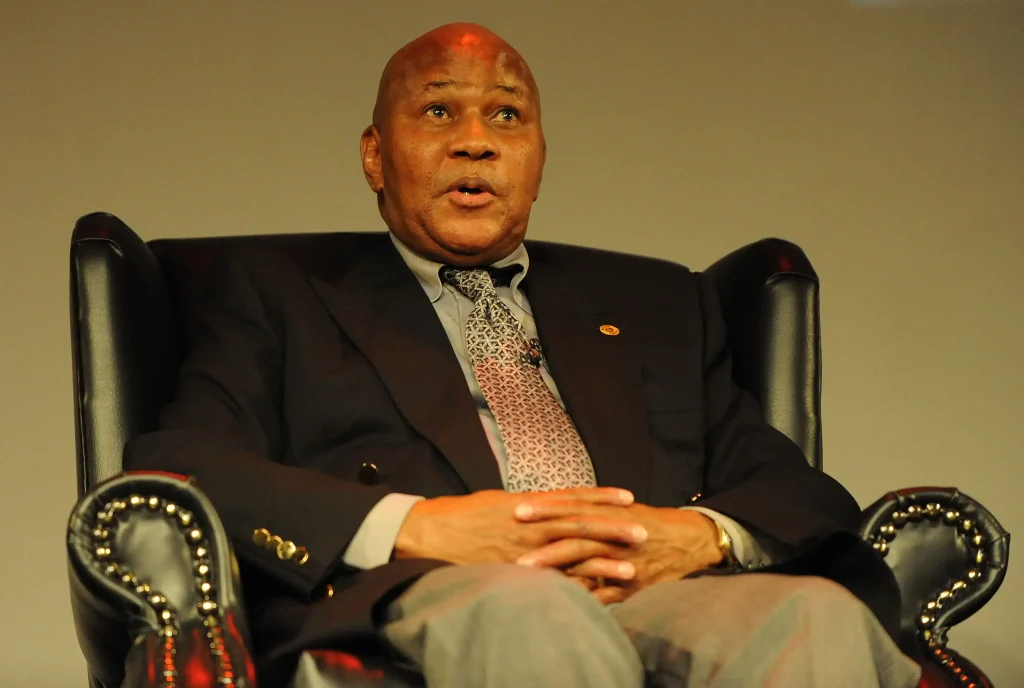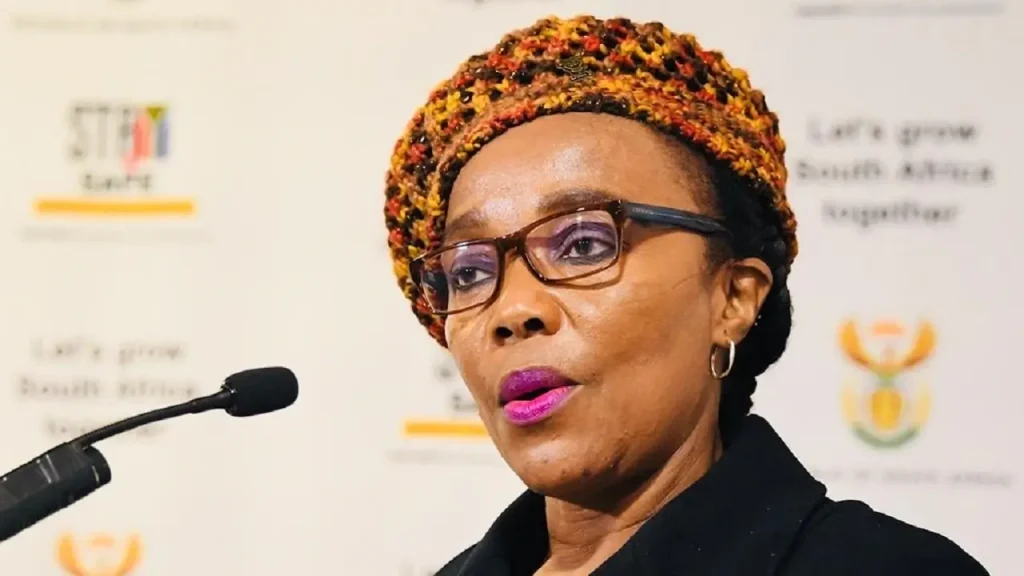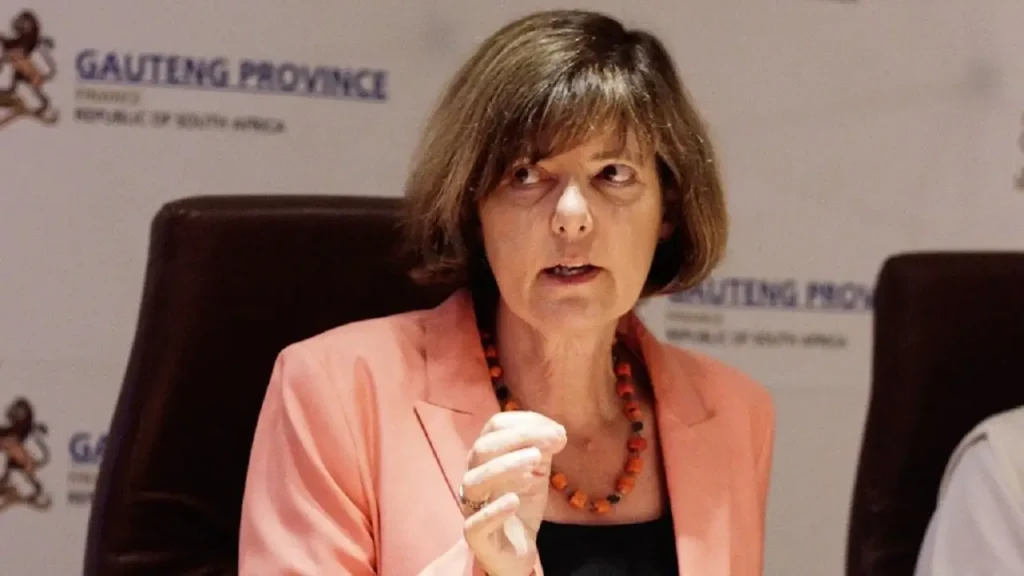Quick Facts
| Fact | Details |
|---|---|
| Full Name | Thabo Mvuyelwa Mbeki |
| Date of Birth | June 18, 1942 |
| Place of Birth | Idutywa, Eastern Cape, South Africa |
| Political Affiliation | African National Congress (ANC) |
| Position(s) | Former President of South Africa (1999–2008) |
| Spouse | Zanele Mbeki |
| Education | University of Sussex (Economics, M.A.) |
| Key Focus Areas | African Unity, Economic Development, Global Diplomacy, Education |
| Notable Achievements | Leading South Africa’s post-apartheid development, Initiating African Renaissance, Serving as Deputy President and President |
Introduction
Thabo Mbeki is one of South Africa’s most prominent and transformative political figures. Serving as the country’s second post-apartheid president from 1999 to 2008, Mbeki played a crucial role in steering the nation through a critical period of development, both domestically and internationally. Known for his intellectual approach to governance and his advocacy for African unity, Mbeki’s leadership left a lasting impact on South Africa and the broader African continent.
Born on June 18, 1942, in the small village of Idutywa in the Eastern Cape, Mbeki’s path to becoming president was shaped by his early experiences during apartheid, as well as his strong academic and political background. His tenure as president, marked by both achievements and controversies, continues to be a subject of study and debate.
Early Life and Education
Thabo Mbeki was born into a politically active family. His father, Govan Mbeki, was a prominent ANC member and intellectual who would have a significant influence on Thabo’s political views. Raised during the harsh years of apartheid, Mbeki’s early life was characterized by a strong sense of resistance to the oppressive system that governed South Africa.
After completing his early education in South Africa, Mbeki moved to the United Kingdom to study at the University of Sussex, where he earned a master’s degree in economics. His time abroad exposed him to a wider world of political thought, which would later influence his political ideology and leadership style.
Political Involvement and Rise within the ANC
Mbeki’s political career began in earnest in the early 1960s when he joined the African National Congress (ANC) Youth League, driven by his desire to challenge apartheid. In the 1960s, he went into exile due to the apartheid government’s repression of anti-apartheid activism. Mbeki’s exile took him to various countries, including England, where he became involved in political organizing and representing the ANC in international forums.
He was also part of the ANC’s broader diplomatic efforts to gain international support for the anti-apartheid struggle. Mbeki’s exceptional intellectual and diplomatic skills made him a key figure in the ANC’s international relations, particularly in the fight for economic sanctions against the apartheid regime.
In the 1980s, Mbeki became one of the ANC’s most influential leaders in exile. During this period, he was instrumental in forging relationships with various world leaders and organizations that would later help in the transition to a democratic South Africa.
Deputy Presidency and Leadership Under Mandela
When Nelson Mandela was released from prison in 1990, Mbeki was one of the key figures in the ANC’s negotiations with the apartheid government. His intellectual approach to political issues and his strategic vision made him an important leader within the ANC. In 1994, when South Africa held its first democratic elections, Mbeki became the country’s deputy president under Nelson Mandela.
As deputy president, Mbeki played a significant role in the country’s reconstruction and development, especially in terms of economic policy. He promoted a vision of South Africa’s future as one of rapid modernization, economic growth, and global integration. Mbeki was particularly focused on issues like economic liberalization, the African Renaissance, and the need for African countries to stand together in the face of global challenges.
Presidency of South Africa
In 1999, Thabo Mbeki succeeded Nelson Mandela as the president of South Africa. His presidency, which lasted until 2008, was marked by a number of significant achievements as well as some controversies.
Economic Development and Growth
One of Mbeki’s most notable accomplishments as president was his focus on economic growth and stability. Under his leadership, South Africa saw impressive economic growth rates, an increase in foreign investment, and the development of the country’s infrastructure. Mbeki’s economic policies were largely based on neoliberal principles, promoting market-driven growth while also focusing on addressing the legacies of apartheid.
Mbeki’s government also played a critical role in expanding access to education and healthcare, though critics argue that the pace of transformation in these areas was insufficient given the country’s deep inequalities.
African Renaissance and Pan-Africanism
Mbeki was a passionate advocate for an “African Renaissance,” a movement aimed at revitalizing the African continent through greater political and economic cooperation. His vision of an empowered, self-sufficient Africa led to the establishment of key initiatives such as the African Union (AU), which Mbeki championed as a tool for African unity and self-determination. He emphasized the need for African leaders to solve African problems without reliance on external powers.
Mbeki also played a pivotal role in peacekeeping efforts across Africa, notably in Sudan, Burundi, and the Democratic Republic of Congo. His diplomatic approach was critical in navigating the complexities of African politics.
HIV/AIDS Controversy
While Mbeki’s presidency was largely defined by his economic and diplomatic successes, one of the most contentious aspects of his time in office was his stance on HIV/AIDS. Mbeki famously questioned the link between HIV and AIDS, and he promoted alternative treatments for the disease, including the use of garlic and beetroot, instead of antiretroviral drugs. His stance led to widespread criticism both domestically and internationally, as South Africa faced one of the highest HIV/AIDS infection rates in the world.
This controversial position is viewed by many as one of the key failures of his presidency, with the delayed response to the AIDS crisis causing unnecessary deaths and suffering in the country.
Leadership Transition and Resignation
In 2008, Mbeki was forced to resign as president after a long-standing political feud with then ANC leader Jacob Zuma. Mbeki’s term was marked by significant political tension, particularly regarding his handling of the corruption charges against Zuma. This culminated in the ANC’s decision to recall Mbeki, which led to his resignation.
Despite the challenges and controversies that marked his presidency, Mbeki left a significant legacy in terms of his contributions to South Africa’s economic growth and his efforts toward African unity.
Post-Presidency and Legacy
After his resignation, Mbeki remained active in global and African politics, continuing to advocate for African solutions to African problems. He has also been involved in various international organizations, including the United Nations and the African Union. Mbeki has taken on roles as a mediator in various African conflicts and has maintained his advocacy for African development.
In terms of his legacy, Mbeki is often remembered for his intellectual depth, diplomatic skill, and commitment to the African Renaissance. His leadership, particularly in relation to South Africa’s economic growth and Africa’s unity, continues to shape the continent’s trajectory today.
However, his presidency also remains a subject of intense debate, with some viewing him as a visionary leader who laid the groundwork for modern South Africa, while others point to his controversial handling of issues like HIV/AIDS as a major flaw in his leadership.





